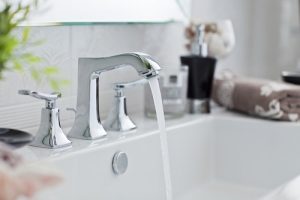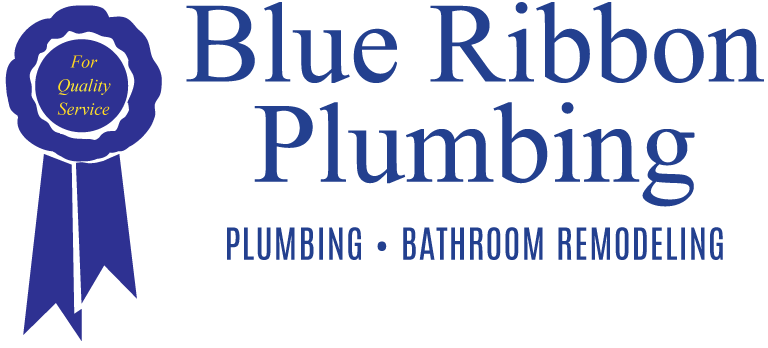 The quality of the water that flows into your home is vital for the well-being of your family. Many factors can affect your water quality, and some of them originate right within your home, particularly your plumbing system. You may notice unpleasant odors or cloudy water, which could lead you to consider installing a filtration system.
The quality of the water that flows into your home is vital for the well-being of your family. Many factors can affect your water quality, and some of them originate right within your home, particularly your plumbing system. You may notice unpleasant odors or cloudy water, which could lead you to consider installing a filtration system.
While filtration helps, it’s essential to recognize that your plumbing system, especially the materials it’s made of, can also significantly impact your water quality. Neglecting plumbing issues can lead to long-term problems, affecting not only the taste and smell of your water but also your family’s health and safety.
1. Corrosion in the Water Heater
Water heaters, especially those around a decade old, can develop corrosion issues. Neglecting proper maintenance, such as small part replacements and annual tank draining, can accelerate this process. Signs of corrosion include rattling and knocking sounds when using hot water, indicating that your water quality may be compromised.
Inside the tank, sediment naturally accumulates over time, hindering heat transfer and promoting corrosion. Corrosion can leach into the water, affecting its taste, appearance, and smell, as well as your skin. Replacing the sacrificial anode rod, which slowly dissolves to prevent tank rusting, can help prevent corrosion. A qualified plumber in Myrtle Beach can handle this replacement.
Look out for these signs of water heater corrosion:
- Rusty yellow or brown-colored tap water.
- Foul odors resembling rotten eggs.
- Cloudy or murky water.
- A metallic taste in your drinking water.
2. Soft Water in Plumbing
While often overlooked, soft water can be a significant concern for water quality. Soft water contains too few minerals, which may not immediately affect the taste or smell but can lead to health issues over time. Water softeners, which work by adding sodium, can give soft water a salty scent and flavor. This can increase your sodium intake, which is unhealthy for individuals with heart problems and high blood pressure.
Soft water can also leach harmful metals from pipes, picking up sediment along the way, weakening your plumbing in Myrtle Beach, and compromising water quality. This is especially risky if your home has old lead pipes. Ingesting lead can be dangerous, altering the taste of your drinking water and posing health risks. If your home is older, consider having your water pipes tested for lead.
 3. Hard Water and Dishwasher
3. Hard Water and Dishwasher
Hard water, rich in minerals like calcium and magnesium, can damage your dishwasher and affect its performance. These minerals can come from the ground or from aging, unmaintained pipes in your plumbing system. While hard water may not directly impact the taste or smell of your drinking water, it can leave mineral deposits on your dishwasher’s heating element, clog nozzles, cloud glassware, and leave dishes with residue. This affects the quality of your water and the efficiency of your dishwasher.
4. Water Heater Sediment
Water heaters can accumulate sediment inside their tanks over time. It’s advisable to have a plumber drain the tank and remove these particles annually to prevent breakdowns. As your water heater approaches the ten-year mark, consider biannual plumbing maintenance. Neglecting sediment buildup can result in particles entering your drinking water, affecting its quality.
5. Heavy Metals and Contaminants in Drinking Water
Homes built before 1986 may have plumbing pipes prone to leaching contaminants into the water supply. Regular maintenance by Myrtle Beach residential plumbers can help prevent these chemicals and minerals from compromising your family’s health. Different types of pipes are found in homes, and their age and material can impact your drinking water quality:
Galvanized Pipes: Prone to rust and corrosion, they may have a higher lead content, affecting water taste and smell.
Lead Pipes: Aging lead pipes or lead-based solder used in plumbing connections can introduce lead into your water, posing health risks.
PVC Pipes: While corrosion-resistant, PVC pipes can sometimes release additives into the water over time.
Copper Pipes: Although durable, excessive copper can result in metallic odors and tastes.
6. Plumbing Issue: Low Water Pressure
Low water pressure may not seem directly related to water quality, but it can affect your daily routines. Inadequate water pressure can lead to unsatisfactory showers and difficulties in cleaning dishes properly. Often, low water pressure results from old, leaking, or blocked pipes in or around your home. A professional plumber can inspect your plumbing system to identify and address the root cause of low water pressure.
Don’t compromise your water quality or your family’s well-being. Regular plumbing maintenance and repairs by Blue Ribbon Plumbing LLC can ensure clean and safe drinking water in your home.
Take action today to safeguard your water quality. Call Blue Ribbon Plumbing LLC. to Schedule a plumbing inspection to address any plumbing issues.
Like our Facebook page for more great info about services.
Blue Ribbon Plumbing LLC.
Myrtle Beach, SC 29579
(843) 267-9733
https://www.blueribbonplumbingmb.com/
Serving all of Horry County including Myrtle Beach, North Myrtle Beach, Little River, Murrells Inlet/Garden City, Surfside Beach, Carolina Forest/Forestbrook, Conway/Aynor

